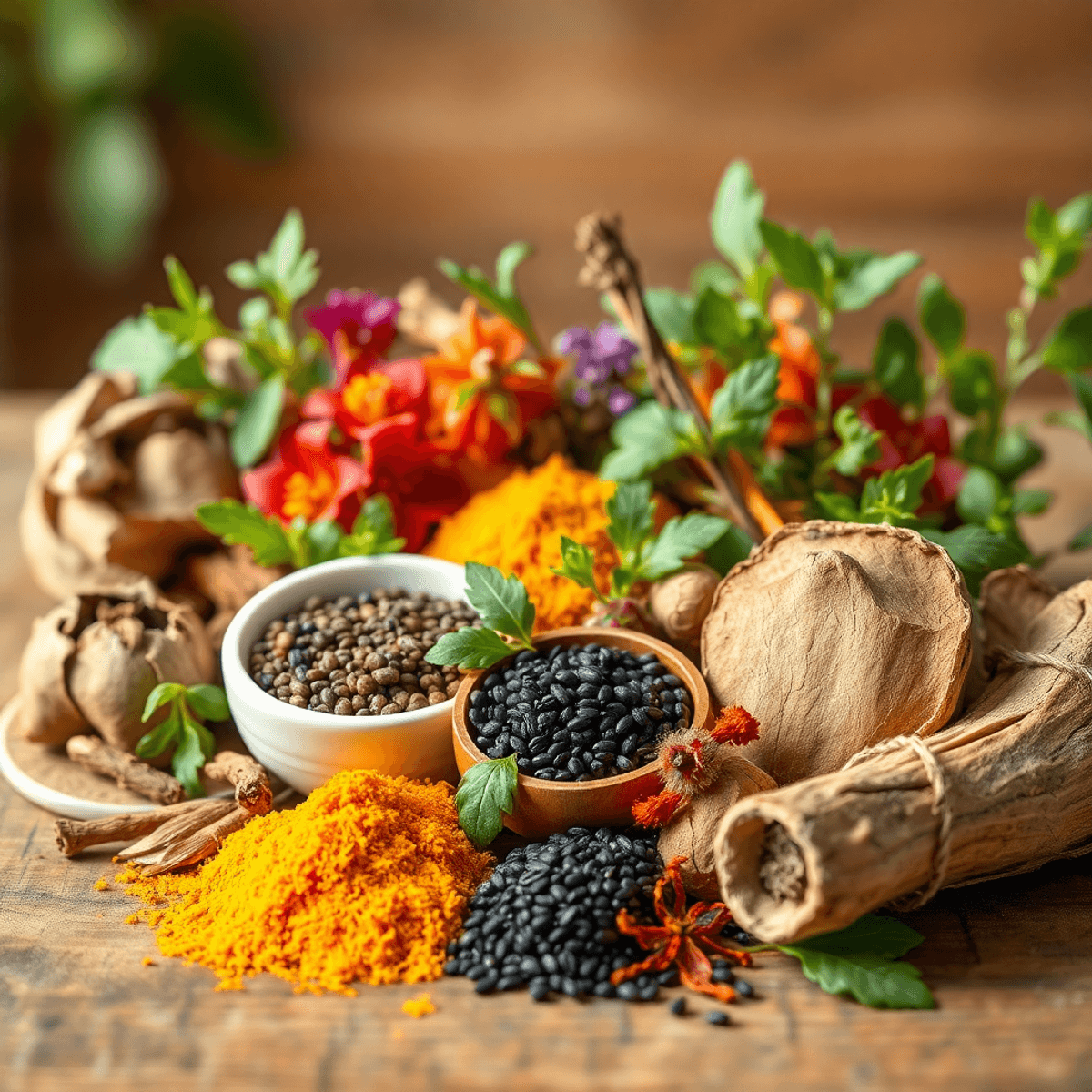Eczema Relief: How Avipattikar Churna Can Make a Difference

Understanding Eczema
Eczema, also known as atopic dermatitis, is a condition that causes the skin to become itchy and inflamed. The symptoms of eczema can vary from person to person and may include:
- Itchy and inflamed skin: The affected areas of skin may be extremely itchy and red.
- Red or brownish-gray patches: These patches can appear on various parts of the body, including the face, neck, elbows, and knees.
- Small, raised bumps that may leak fluid: In some cases, small blisters may develop and ooze fluid.
- Thickened or cracked skin: Over time, repeated scratching or rubbing of the affected areas can lead to thickened, leathery skin.
These symptoms often cause discomfort and can significantly impact a person's quality of life.
The Link Between Gut Health and Eczema
The causes of eczema go beyond just the skin. They are often connected to underlying health issues, with poor gut health being a major contributor. Conditions like leaky gut syndrome and gastritis are commonly associated with skin reactions. When the digestive system is not functioning properly, it can lead to inflammation and immune responses that show up on the skin.
Dr. Vivek emphasizes that in order to effectively treat eczema, it is important to first address any gut health issues. He explains that topical treatments may provide temporary relief but will not be effective in the long run if the internal causes are not taken care of. This approach aligns with the growing understanding of the gut-skin connection, where an imbalanced gut microbiome can trigger or worsen skin conditions.
Taking a Holistic Approach to Eczema Management
Understanding this connection between gut health and eczema is crucial for finding long-term relief and managing symptoms. Instead of solely relying on external treatments, it is important to adopt a holistic approach that targets both gut health and skincare.
In addition to addressing internal health issues, incorporating all-natural ingredients into your skincare routine can greatly enhance your skin's natural health. 1936 Original offers high-quality eczema products that are carefully curated to nourish and benefit your skin.
For those looking for specific relief from eczema, exploring specialized eczema treatment products such as creams and body washes designed for different age groups could provide significant benefits. These products not only help manage eczema but also assist in alleviating related conditions like atopic dermatitis and psoriasis.
Avipattikar Churna: An Ayurvedic Approach to Eczema Relief
Avipattikar Churna is a powerful Ayurvedic formulation renowned for its digestive benefits and its role in alleviating skin conditions like eczema. This herbal blend is designed to balance the body's doshas, particularly focusing on the digestive system's health.
What is Avipattikar Churna?
Avipattikar Churna is a traditional Ayurvedic remedy consisting of a combination of herbs known for their ability to aid digestion. It typically includes ingredients like amla (Indian gooseberry), haritaki, bibhitaki, and various other botanicals that collectively enhance digestive functions and promote overall gut health.
Healing Leaky Gut and Gastritis
By targeting the root cause of many skin conditions—poor gut health—Avipattikar Churna works from the inside out. Its properties help in healing issues such as leaky gut syndrome and gastritis, which are often linked to skin flare-ups like eczema. The blend gently detoxifies the digestive tract, reduces inflammation, and supports the intestinal lining's integrity, preventing toxic substances from entering the bloodstream.
Historical Use in Ayurveda
In Ayurveda, Avipattikar Churna has been historically used not only for digestive issues but also for its benefits in treating various skin conditions. Ancient texts highlight its effectiveness in balancing the Pitta dosha, which when aggravated, can lead to inflammatory skin disorders. By calming this internal fire, Avipattikar Churna provides relief from symptoms associated with eczema, making it one of the trusted Ayurvedic remedies for eczema.
Embrace this time-tested remedy as part of a holistic approach to manage eczema effectively through natural means.
Supporting Nutrients for Skin Health
In managing eczema, two essential nutrients play a crucial role in skin health: Vitamin A and Vitamin D3. These vitamins are not just beneficial for overall health but specifically target skin issues like inflammation and texture improvement.
1. Vitamin A
Known for its ability to reduce inflammation, Vitamin A can significantly improve skin texture. It works by promoting the production of new skin cells, which helps in replacing old, damaged layers. For individuals suffering from eczema, this means smoother and softer skin with reduced dryness.
Dr. Vivek recommends a daily intake of 4,000 to 5,000 International Units (IU) of Vitamin A to aid in decreasing inflammation and enhancing skin moisture.
2. Vitamin D3
This nutrient is vital for maintaining normal skin health and preventing inflammation. Adequate levels of Vitamin D3 help regulate the immune system's response to inflammation, which is often exaggerated in eczema sufferers.
By ensuring optimal Vitamin D3 levels, you can support your skin's natural defense mechanisms and keep inflammatory responses in check.
Both these vitamins provide a foundation for healthier skin by addressing underlying issues related to eczema. Incorporating them into your daily regimen can yield noticeable improvements in the condition of your skin over time.
The Pitta Diet Approach to Eczema Management
Ayurveda, the ancient holistic medical science, emphasizes the balance of bodily energies or doshas. One such dosha is Pitta, associated with the fire element and responsible for metabolism and digestion. An imbalance in Pitta is often linked to skin conditions, including eczema. The Pitta diet aims to restore this balance by focusing on cooling and soothing foods.
Foods That Aggravate Pitta
Certain foods can increase Pitta, leading to inflammatory responses in the body:
- Hot and spicy foods: Ingredients like bell peppers and black pepper should be minimized.
- Sour foods: Yogurt and fermented products can elevate Pitta.
- Salty foods: Excessive salt intake may disturb Pitta balance.
Foods That Help Balance Pitta
On the flip side, incorporating cooling and calming foods can help soothe Pitta:
- Sweet fruits: Such as melons and pears.
- Leafy greens: Spinach and kale are excellent choices.
- Coconut products: Coconut water and oil offer cooling effects.
By following these dietary guidelines, you may find relief from eczema symptoms. Avipattikar Churna complements this approach by addressing gut health, a critical factor in balancing Pitta through its healing properties for leaky gut and gastritis. This holistic strategy targets not just the symptoms but also the root causes of eczema.
Practical Tips for Following the Pitta Diet
Incorporating a Pitta diet into your daily routine doesn't have to be daunting. With some simple meal planning strategies, you can effectively reduce Pitta aggravation and promote healthier skin.
Meal Planning Strategies:
- Balance is Key: When planning meals, aim for balance in flavor and temperature. Opt for cool, mildly flavored foods that help pacify Pitta.
- Regular Meal Times: Consistency in eating times helps maintain digestive fire at optimal levels, preventing exacerbation of Pitta.
- Hydration: Stay hydrated with water or herbal teas like chamomile or mint, which are known for their cooling properties.
Examples of Pitta-Friendly Foods:
- Fruits: Sweet and juicy fruits such as melons, grapes, and mangoes.
- Vegetables: Leafy greens like spinach and kale, alongside cucumbers and zucchini.
- Grains: Rice and oats serve as excellent choices due to their cooling nature.
- Dairy: Milk and soft cheeses provide a soothing effect on Pitta.
Sample Recipe: Cooling Cucumber Salad
Ingredients:
- 2 cucumbers, thinly sliced
- 1 cup plain yogurt
- 1 tbsp fresh mint leaves, chopped
- Salt to taste
Instructions:
- Mix all ingredients in a bowl.
- Serve chilled as a refreshing side dish.
This approach supports not only skin health but overall well-being by balancing internal energy through mindful dietary adjustments.
Conclusion
Taking a holistic healing approach to eczema can greatly improve your skin health and overall well-being. By incorporating Avipattikar Churna into your daily routine, you are addressing not only the symptoms but also the underlying causes related to gut health issues. Along with important supporting nutrients like Vitamins A and D3, and intentional dietary changes such as the Pitta diet, you are setting yourself up for long-lasting relief. These lifestyle adjustments provide a comprehensive plan that can significantly impact your ability to manage eczema effectively. Make your health a priority and discover a path to clearer skin and a happier life.
FAQs (Frequently Asked Questions)
What is eczema and what causes it?
Eczema, also known as atopic dermatitis, is a skin condition characterized by inflammation, redness, and itching. The causes of eczema go beyond just the skin and often involve factors such as genetics, environmental triggers, and gut health.
How is gut health connected to eczema?
There is a significant link between gut health and eczema. Poor gut health can contribute to skin conditions like eczema by affecting the immune system and inflammatory responses in the body.
What is Avipattikar Churna and how does it help with eczema?
Avipattikar Churna is a powerful Ayurvedic formulation renowned for its ability to promote digestive health and balance the body's doshas. By targeting root causes such as poor gut health, it can provide relief from symptoms associated with eczema.
What nutrients are essential for skin health in managing eczema?
Two essential nutrients that play a crucial role in managing eczema are Vitamin A and Vitamin D3. Vitamin A helps reduce inflammation while Vitamin D3 is vital for maintaining normal skin health and barrier function.
What dietary changes can help manage eczema according to Ayurveda?
Ayurveda emphasizes a Pitta diet approach to manage eczema. This includes avoiding foods that aggravate Pitta, such as spicy or fried foods, while incorporating cooling and calming foods like sweet fruits and vegetables.
Can you provide an example of a Pitta-friendly recipe for those managing eczema?
A simple Pitta-friendly recipe is Cooling Cucumber Salad. Ingredients include thinly sliced cucumbers, plain yogurt, fresh mint, and salt. Mix all ingredients in a bowl and serve chilled for a refreshing dish that helps soothe inflammation.










